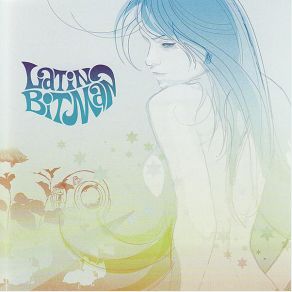Latin Bitman
Download links and information about Latin Bitman by DJ Bitman. This album was released in 2007 and it belongs to Latin genres. It contains 12 tracks with total duration of 36:43 minutes.

|
|
|---|---|
| Artist: | DJ Bitman |
| Release date: | 2007 |
| Genre: | Latin |
| Tracks: | 12 |
| Duration: | 36:43 |
| Buy it NOW at: | |
| Buy on iTunes $9.99 | |
| Buy on Amazon $9.99 | |
Tracks
[Edit]| No. | Title | Length |
|---|---|---|
| 1. | Latin Airlines Intro | 0:56 |
| 2. | My Computer Is Funk | 3:37 |
| 3. | Me Gustan | 2:55 |
| 4. | Ejale! | 3:08 |
| 5. | Tropilove | 3:19 |
| 6. | Shine | 3:15 |
| 7. | El Diablo | 3:20 |
| 8. | La Raza | 3:06 |
| 9. | Blackbossa | 3:55 |
| 10. | Sra. Maria | 3:40 |
| 11. | Refuse | 2:41 |
| 12. | Pipe Dream | 2:51 |
Details
[Edit]Latin Bitman, the debut solo album by DJ Bitman, formerly of the group Bitman & Roban, is a feel-good album comprised of a diversity of styles and sounds. Hip-hop is a key ingredient, for Bitman is a skilled DJ with a gift for beat-making and scratching. Practically the entire album is driven by hip-hop beats, and a couple songs, namely "El Diablo" and "La Raza," even employ Spanish-language rappers. Yet, though hip-hop is a key ingredient to Latin Bitman, it's only one of many. Latin music, of course, is another key ingredient, though not in the form of traditional styles such as salsa or merengue; rather, Bitman draws from the entire canon of Latin music, past and present, to fashion his hip-hop-style beats in such a way that they're unmistakably Latin (as in Latin culture, not just the music). Furthermore, Bitman does a lot of sampling on Latin Bitman, adding extra layers to the music, and when he's not sampling vocal snippets or hooks, he incorporates guest vocalists, most notably on "Tropilove," a catchy love song featuring Julian Peña and Tea Time, and "Sra. Maria," a harder, reggaeton-style song featuring Tea Time and Rulo. There are many other ingredients to Latin Bitman, a kaleidoscopic album of mixed and matched styles of party music (hip-hop, tropical, bossa nova, reggae, funk, lounge, electronica), but it's the sum of these stylistic ingredients and Bitman's different production approaches (sampling and scratching, as well as live instrumentation and singing/rapping) that makes the album such an enjoyable listen, for every song is fresh and unique. On the downside, Latin Bitman can sound like background music after a while — the kind of background music you might hear at a fashionable boutique or club, granted — as it all flows together smoothly like a DJ mix. A couple more standout songs like "Tropilove" or "El Diablo" would help puncture the seamlessness that connotes "background music." All the same, Latin Bitman is great as it is, especially if you're looking for an unbeat, feel-good album that flows well from beginning to end, without any disruptions or major changes in tempo or mood along the way. Albums like this were fairly common during the late '90s, during the electronica boom; in 2007, however, such albums were rarer, especially ones with a bilingual Latin alternative bent to them.